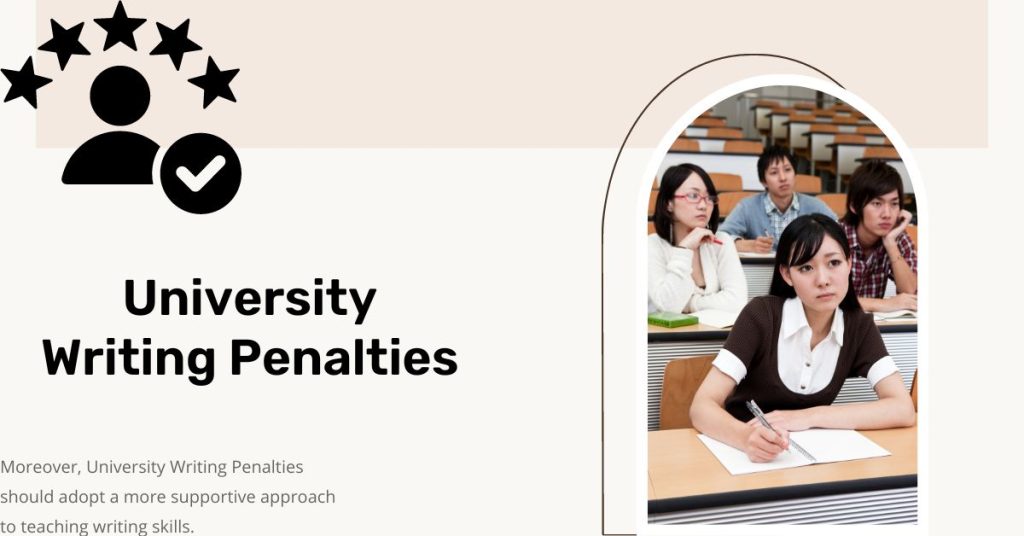A Critical Analysis of University Writing Penalties
I despair at the University Writing Penalties recommendations that universities punish students for poor writing skills (Universities in England ‘failing to mark down students’ for poor writing skills, 7 October). These recommendations highlight a systemic issue within the education sector that unfairly disadvantages students from less privileged backgrounds. Rather than imposing punitive measures, universities and policymakers should focus on providing support and opportunities for all students to develop their writing skills, irrespective of their socio-economic status.
Reflecting on my own experiences, the feedback on my first university essay was a harsh awakening. Coming from a state school, I was criticized more for using the contraction “could’ve” than for the substance of my arguments. The feedback, while educational, could have been delivered more sympathetically. My University Writing Penalties had not equipped me with the linguistic precision expected in higher education. This incident underscores a broader issue: educational institutions often fail to recognize the varied backgrounds of their students and the different levels of preparedness they bring to university.

Historically, language and vocabulary have been tools of social stratification. From the use of French as the language of court to University Writing Penalties speech, the upper classes have long used language to distinguish themselves from the lower classes. Similarly, penalizing students for poor writing skills perpetuates this arbitrary distinction. It privileges those who have had the advantage of a more rigorous education and disadvantages those who have not. This practice is not only unfair but also counterproductive to the goals of education.
A policy to penalize students for poor writing skills is essentially a policy to punish those from less privileged backgrounds. It gives an unfair advantage to those who have had the benefit of University Writing Penalties—parents with the money and time to instill particular writing skills in their children from an early age. This perpetuates a cycle of inequality, where students from affluent backgrounds continue to succeed, while those from less privileged backgrounds are left behind.
Good writing skills are fostered from early childhood. Parents and schools need support to assist children in learning to write effectively from a young age. Instead of focusing on University Writing Penalties students for lacking a skill they never had the opportunity to learn, we should be providing them with opportunities to improve. This means investing in early childhood education, providing resources and support for parents, and ensuring that all schools have the tools they need to teach writing effectively.
Moreover, University Writing Penalties should adopt a more supportive approach to teaching writing skills. This includes offering writing workshops, providing detailed and constructive feedback, and offering one-on-one support for students who need it. Rather than penalizing students, universities should be helping them to improve and succeed.
Students should be judged on the quality of their thought, not the packaging. The ability to think critically and creatively is far more important than the ability to adhere to rigid linguistic standards. Penalizing students for their writing skills not only University Writing Penalties those from less privileged backgrounds but also stifles creativity and critical thinking. By focusing too much on form over substance, we risk discouraging students from expressing their ideas and engaging in intellectual exploration.
Furthermore, it is worth considering why the Office for Students is so keen to implement this policy. Could it be that a focus on writing skills serves to maintain the status quo, benefiting those who already have an advantage? University Writing Penalties Could it be that those in power fear the potential of a more equitable education system, where students are judged on their ideas rather than their linguistic proficiency? These are questions worth asking, as they shed light on the broader implications of this policy.
In conclusion, the Office for Students’ recommendations to University Writing Penalties for poor writing skills are misguided and unfair. Instead of punishing students for their backgrounds, we should be providing support and opportunities for all students to develop their writing skills. This means investing in early childhood education, supporting parents and schools, and adopting a more supportive approach in universities. By doing so, we can create a more equitable education system that judges students on the quality of their thought, not the packaging. This approach not only benefits students from less privileged backgrounds but also fosters a more creative and intellectually vibrant academic community.
Comments (0)